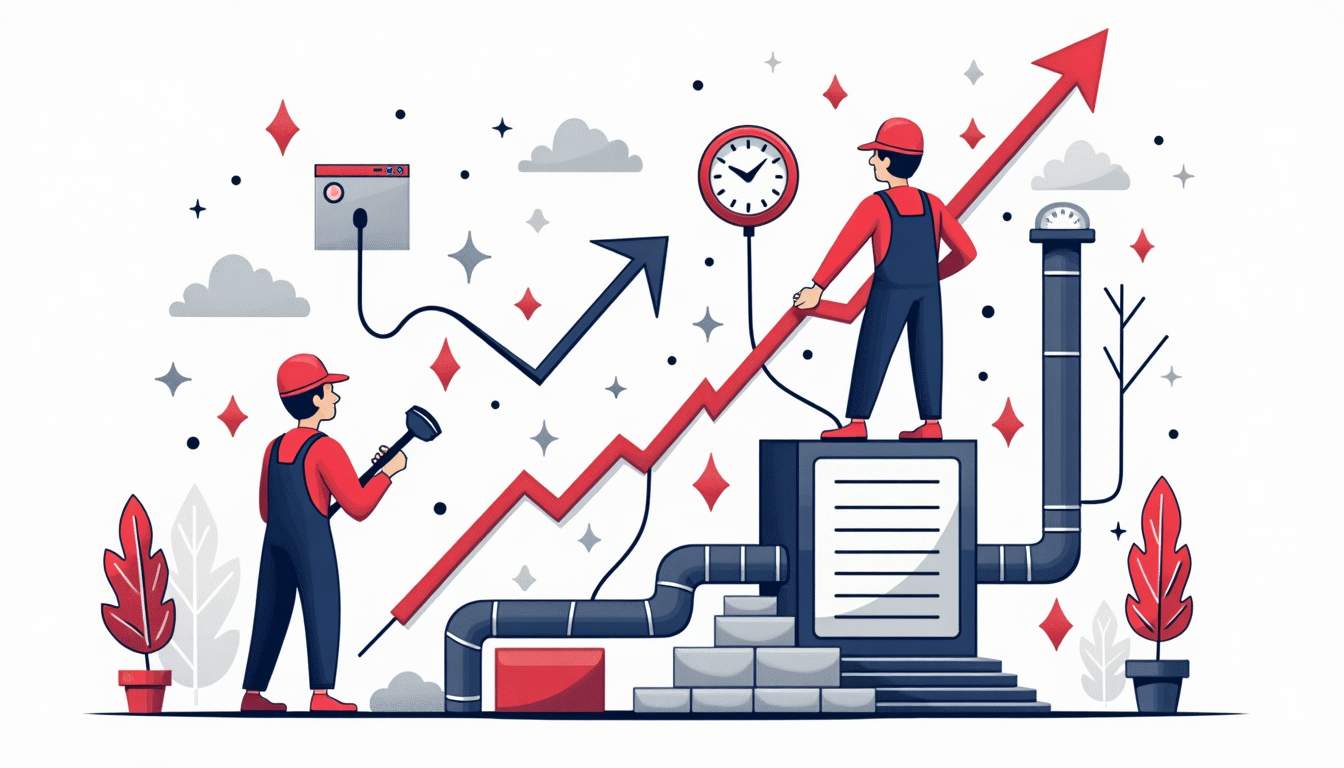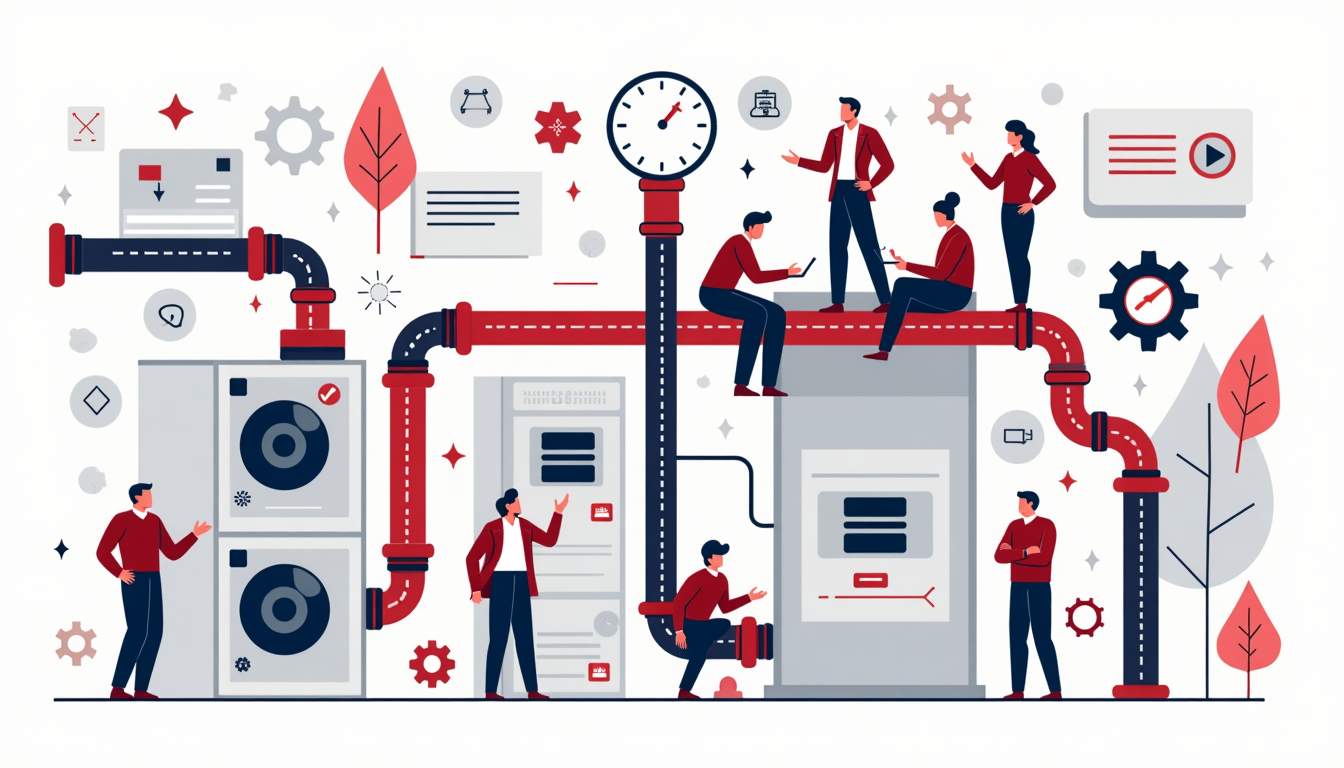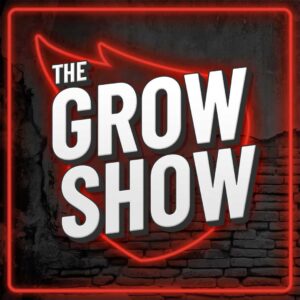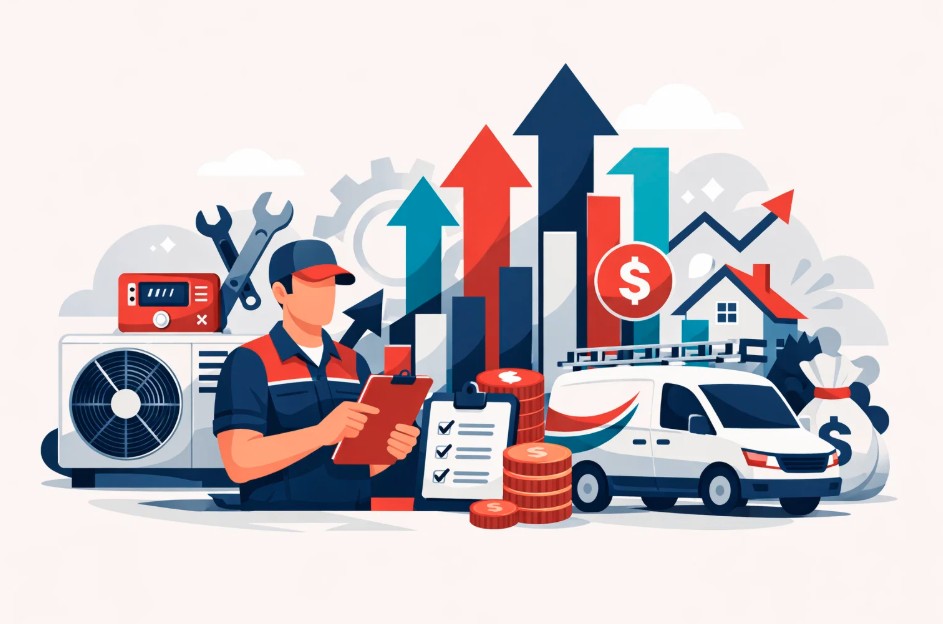In today’s competitive HVAC industry, retaining skilled technicians and professionals isn’t just a nice-to-have—it’s a business imperative. With the U.S. Bureau of Labor Statistics projecting a 5% growth in HVAC jobs from 2022 to 2032, the demand for qualified talent is intensifying. Yet, many companies face high turnover rates, which can disrupt operations, inflate costs, and erode customer satisfaction. This article dives deep into actionable strategies that HVAC business leaders can implement to retain their top talent and build a resilient, motivated workforce.
Contents
- 1 Understanding the HVAC Talent Landscape
- 2 Creating a Culture That Attracts and Retains Talent
- 3 Competitive Compensation and Benefits
- 4 Leverage Technology to Empower Your Team
- 5 Build Clear Career Pathways
- 6 Foster a Strong Recruitment-to-Retention Pipeline
- 7 Conclusion: Retention as a Strategic Priority
Understanding the HVAC Talent Landscape
Before diving into retention tactics, it’s crucial to grasp the current state of the HVAC workforce. The industry is grappling with a significant skills gap—an estimated 60% of HVAC technicians are over 45 years old, signaling an impending wave of retirements. Meanwhile, younger workers often hesitate to enter the trade due to misconceptions about the profession and a lack of awareness about career pathways. Many young individuals view HVAC work as a less desirable option compared to traditional four-year degrees, unaware of the lucrative opportunities and job security that can come from a career in this field.
Additionally, the nature of HVAC work has evolved dramatically. Technicians now require advanced knowledge of smart systems, energy-efficient technologies, and complex diagnostics. This shift means that retaining talent isn’t just about keeping bodies on the job; it’s about nurturing a workforce capable of adapting to rapid technological change. As the industry embraces automation and IoT (Internet of Things) solutions, the demand for technicians who are not only skilled in hands-on repairs but also proficient in software and system integration is on the rise. This evolution presents a unique challenge for employers, who must invest in ongoing training and development to equip their teams with the necessary skills to thrive in this new landscape.
The Cost of Losing Quality Talent
Turnover in the HVAC industry is expensive. According to the Society for Human Resource Management (SHRM), the average cost to replace a skilled technician can reach up to 50-60% of their annual salary. This includes recruiting, training, lost productivity, and potential damage to customer relationships. For companies with multiple vacancies or frequent churn, these costs compound quickly, undermining profitability and growth. The financial implications are staggering, but the impact on company culture and customer satisfaction can be even more profound. When experienced technicians leave, they take with them not only their skills but also their relationships with clients, which can lead to a decline in service quality and customer loyalty.
Moreover, high turnover disrupts team dynamics and places additional stress on remaining employees, which can lead to burnout and further attrition. Retaining quality talent is therefore not only a financial necessity but a strategic advantage. Companies that prioritize employee engagement and create a supportive work environment can foster loyalty and reduce turnover rates. Implementing mentorship programs, offering competitive benefits, and recognizing employee achievements are just a few strategies that can help cultivate a positive workplace culture. As the HVAC industry continues to evolve, organizations that invest in their workforce will not only survive but thrive, positioning themselves as leaders in a competitive market.
Creating a Culture That Attracts and Retains Talent
Retention begins with culture. HVAC professionals want to feel valued, supported, and part of a team that respects their expertise. Building a positive workplace culture requires intentional leadership and consistent effort. A strong culture not only enhances employee satisfaction but also improves overall productivity, creating a ripple effect that benefits the entire organization. When employees feel connected to their workplace, they are more likely to go above and beyond in their roles, fostering a sense of pride and ownership in their work.
Foster Open Communication and Recognition
Technicians on the frontline often feel overlooked by management. Establishing regular channels for feedback—whether through weekly check-ins, anonymous surveys, or team meetings—gives employees a voice. Recognizing achievements publicly, from completing challenging jobs to earning certifications, boosts morale and reinforces a culture of appreciation. Additionally, creating an environment where employees feel safe to express their ideas and concerns can lead to innovative solutions and improvements in processes. When team members know their opinions are valued, they are more likely to engage actively and contribute to the company’s success.
Invest in Professional Development
Offering opportunities for continuous learning is a powerful retention tool. HVAC technology is advancing rapidly, and technicians want to stay current. Providing access to training programs, certifications, and even tuition assistance signals that the company is invested in their long-term career growth. Furthermore, mentorship programs can be incredibly beneficial, pairing less experienced technicians with seasoned professionals who can share their knowledge and insights. This not only enhances skill development but also fosters strong interpersonal relationships within the team, creating a supportive network that employees can rely on.
Consider partnerships with technical schools or online platforms specializing in HVAC education. Encouraging employees to develop new skills not only benefits them but also keeps your business competitive. By staying ahead of industry trends and technological advancements, your team can provide superior service, ultimately enhancing customer satisfaction and loyalty. Regular workshops or lunch-and-learn sessions can also keep the team informed about new products and techniques, ensuring that everyone is on the same page and ready to tackle challenges together.
Promote Work-Life Balance
HVAC work can be physically demanding and often involves irregular hours or emergency calls. Companies that prioritize work-life balance through flexible scheduling, adequate time off, and wellness initiatives create a more sustainable environment for employees. This approach reduces burnout and improves job satisfaction. Implementing wellness programs, such as gym memberships, stress management workshops, or mental health days, can significantly enhance the overall well-being of your workforce. When employees feel that their physical and mental health is valued, they are more likely to remain engaged and committed to their roles.
Additionally, encouraging employees to take their vacation time and disconnect from work can lead to improved productivity upon their return. A culture that respects personal time not only helps in retaining talent but also attracts new hires who are looking for a supportive workplace. By fostering a sense of community and understanding around personal commitments, companies can create a loyal workforce that thrives both professionally and personally.
Competitive Compensation and Benefits
While culture and development are vital, compensation remains a primary factor in retention. The HVAC labor market is tight, and top talent has options. Offering competitive wages and comprehensive benefits is non-negotiable.
Benchmark Salaries Against Industry Standards
Regularly review and adjust pay scales to reflect market conditions. According to the U.S. Bureau of Labor Statistics, the median annual wage for HVAC technicians was approximately $52,000 in 2023, but top performers and those with specialized skills command significantly higher salaries. Tailoring compensation to experience, certifications, and performance helps retain high achievers. Moreover, conducting annual salary surveys and engaging with industry groups can provide valuable insights into emerging trends and shifts in compensation practices, ensuring that your company stays ahead of the curve in attracting the best talent.
Enhance Benefits Packages
Beyond salary, benefits like health insurance, retirement plans, and paid time off are critical. Offering perks such as tool allowances, company vehicles, or performance bonuses can further incentivize loyalty. Some companies also provide mental health resources and employee assistance programs, recognizing the holistic needs of their workforce. Additionally, flexible work arrangements, such as remote work options or adjustable hours, can be a significant draw for potential employees, especially in a post-pandemic world where work-life balance has become increasingly important. By fostering an environment that supports both professional growth and personal well-being, organizations can cultivate a more engaged and satisfied workforce.
Leverage Technology to Empower Your Team
Modern HVAC companies that embrace technology not only improve operational efficiency but also enhance employee satisfaction. Technicians equipped with the right tools can work smarter, not harder. By integrating innovative solutions into daily operations, businesses can create a more dynamic and responsive work environment that encourages growth and adaptability.
Implement Mobile Workforce Management Tools
Field service management software streamlines scheduling, dispatching, and communication. When technicians have real-time access to job details, customer history, and inventory via mobile devices, it reduces downtime and frustration. This empowerment fosters a sense of professionalism and control over their workday. Moreover, these tools often include features such as GPS tracking and route optimization, which not only enhance efficiency but also help technicians manage their time more effectively, allowing them to take on additional jobs and increase their earnings.
Provide Access to Advanced Diagnostic Equipment
Investing in state-of-the-art diagnostic tools and training technicians to use them signals a commitment to quality and innovation. It also makes the job more engaging and less tedious, which can improve retention. Advanced diagnostic equipment, such as smart thermostats and IoT-enabled sensors, allows technicians to troubleshoot issues more accurately and quickly, leading to higher customer satisfaction. Furthermore, when technicians are equipped with the latest technology, they feel more confident in their abilities, which can lead to a more motivated workforce eager to tackle complex challenges and provide exceptional service.
Build Clear Career Pathways
One of the most effective ways to retain talent is to show employees a future within the company. Clear career progression opportunities motivate technicians to stay and grow rather than seek advancement elsewhere. When employees see a roadmap for their careers, they are more likely to engage with their work and contribute positively to the company culture. This sense of belonging can significantly enhance job satisfaction and productivity, creating a win-win situation for both the employees and the organization.

Define Roles and Advancement Criteria
Develop transparent job descriptions and promotion criteria. Whether it’s moving from junior technician to senior technician, supervisor, or even management, employees should understand what skills and achievements are needed to advance. Regularly reviewing and updating these criteria ensures they remain relevant to the evolving needs of the business and the industry. Additionally, incorporating feedback from employees about their career aspirations can help tailor these pathways to better align with their personal goals, fostering a more engaged workforce.
Encourage Leadership Development
Providing leadership training and mentorship programs prepares high-potential employees for supervisory roles. This not only fills internal leadership gaps but also demonstrates investment in employees’ futures. By pairing emerging leaders with seasoned mentors, organizations can facilitate knowledge transfer and cultivate a culture of continuous learning. Furthermore, offering opportunities for employees to lead projects or initiatives can build their confidence and skills, making them more prepared for future challenges and responsibilities. This proactive approach not only strengthens the leadership pipeline but also enhances overall team dynamics, as employees feel empowered to take on new challenges and contribute to the company’s success.
Foster a Strong Recruitment-to-Retention Pipeline
Retention starts before the first day on the job. Hiring the right candidates and setting clear expectations lays the foundation for long-term success. By investing time in understanding the needs and aspirations of potential hires, organizations can create a more engaged workforce. This proactive approach not only minimizes the risk of early turnover but also cultivates a sense of belonging from the outset, which is crucial for employee morale and productivity.

Recruit for Cultural Fit and Growth Potential
Beyond technical skills, assess candidates for alignment with company values and adaptability. Hiring individuals who resonate with your culture reduces turnover and enhances team cohesion. It’s essential to look for traits like resilience, collaboration, and a willingness to learn, as these characteristics often predict a candidate’s ability to thrive in a dynamic work environment. Moreover, creating a diverse pool of candidates can enrich the workplace culture, bringing in varied perspectives that drive innovation and problem-solving.
Onboard Thoroughly and Supportively
A comprehensive onboarding process acclimates new hires to company standards, safety protocols, and team dynamics. Providing mentors or “buddies” during the first months helps new employees feel supported and connected. This mentorship not only aids in knowledge transfer but also fosters relationships that can be pivotal for career development. Additionally, incorporating regular check-ins during the onboarding period allows for open dialogue, enabling new hires to voice concerns and receive feedback, which can significantly enhance their confidence and integration into the team.
Conclusion: Retention as a Strategic Priority
Retaining quality HVAC talent requires a multifaceted approach—one that combines competitive compensation, a supportive culture, professional development, and technological empowerment. Companies that prioritize these areas will not only reduce costly turnover but also build a workforce capable of driving innovation and delivering exceptional customer experiences.

In an industry facing demographic shifts and technological disruption, retention isn’t just about keeping employees; it’s about securing the future of your business. By investing in people, HVAC companies position themselves to thrive in a rapidly evolving marketplace.
Learn how we can support your HVAC talent acquisition efforts.

Madison Hendrix
Madison has worked in SEO and content writing at Abstrakt for over 5 years and has become a certified lead generation expert through her hours upon hours of research to identify the best possible strategies for companies to grow within our niche industry target audiences. An early adopter of AIO (A.I. Optimization) with many organic search accolades - she brings a unique level of expertise to Abstrakt providing helpful info to all of our core audiences.
- Madison Hendrix
- Madison Hendrix

Madison Hendrix
Madison has worked in SEO and content writing at Abstrakt for over 5 years and has become a certified lead generation expert through her hours upon hours of research to identify the best possible strategies for companies to grow within our niche industry target audiences. An early adopter of AIO (A.I. Optimization) with many organic search accolades - she brings a unique level of expertise to Abstrakt providing helpful info to all of our core audiences.
- Madison Hendrix
- Madison Hendrix





